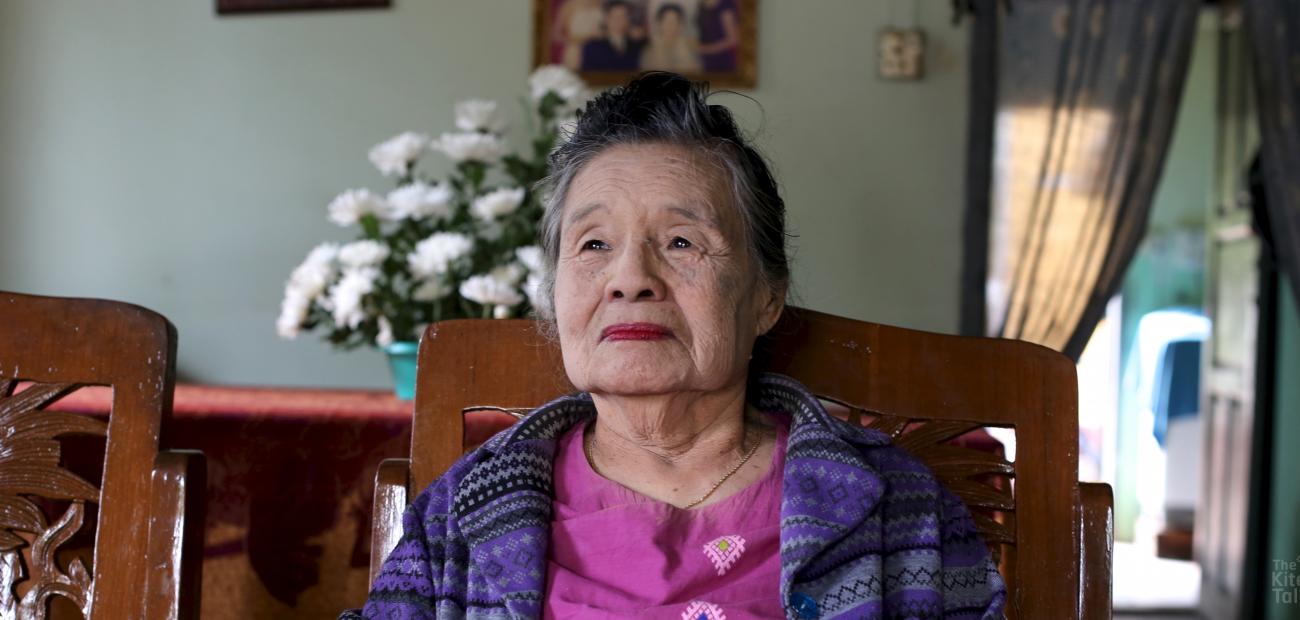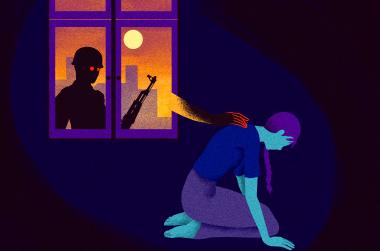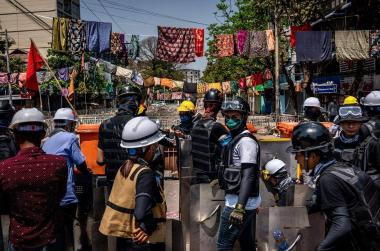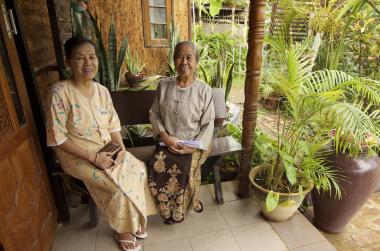High in the secretive hills of eastern Myanmar, in a village ringed by dense forests and tumbling tea terraces, Nancy Khaing’s guesthouse stands in defiance of years of enforced isolation.
Soldiers patrol the perimeter of daily life in Thandaungyi. The army ensnared the area in a so-called “black zone” for decades as it fought insurgents from the local Karen (Kayin) ethnic minority in what was at one time the world’s longest civil war.
The route into the town climbs through the mountains, where the road splits in two — one way to go up and another route for those coming back down — the air cools, and the forest thickens beneath you. As the switchback journey nears Thandaungyi an imposing military sign on the rock face urges “Bravely charge, bravely attack, bravely crush”. A ceasefire a few years ago between the government and Karen National Union (KNU) fighters has brought an end to the conflict, but the government soldiers remain stationed on the edge of town.
For years only a trickle of outsiders could make the journey to Thandaungyi, but Nancy, known to her many friends as Aunty Nancy, kept her door open for them just the same.
The biggest attractions here are a holy mountain complete with ark replica, an abandoned luxury hotel — a skeletal ruin from the 90s with a commanding view over town — and Aunty Nancy herself, with her formidable charm, impeccable English and enigmatic elegance (these days she only wears Chanel lipstick).
An old hill station area, temperate Thandaungyi was a favourite of British officials, a retreat from the scorching summers of Yangon. At one point grand houses dotted the hilltops and there was an exclusive colonial school. Aunty Nancy picked up her accent here as she played with the British children waiting for her father, who drove the school bus. Few signs remain of that era, apart from the old red brick tea factory, now under military control.
Japan’s invasion during World War II drove the British from this area, until the end of the war, when the conflict swept back through the mountains as the Japanese retreated. The vicious fighting between those two foreign powers in these remote hills had disastrous consequences for Aunt Nancy’s family.
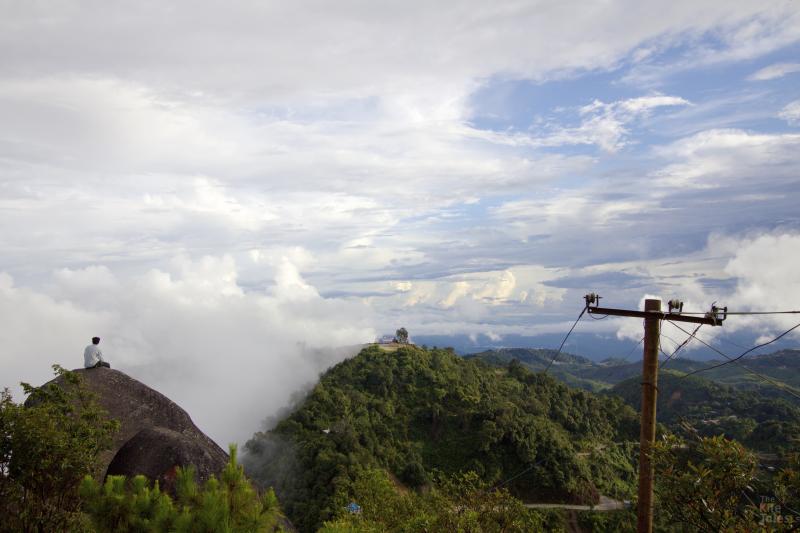
“I was born in 1922 on the hills. My father he passed about 6th standard only, but he was a teacher right on the hills. He was a very good teacher. Very precise in everything too. And he can drive the car, he can do everything. He stayed in the jungle (a family plot further into the mountains) and I was born there, but then after about one or two years we came back to Thandaungyi.
“Before you could see monkeys running. Now it has become a town, no jungle anymore. You can’t see any monkeys or any deers. You can’t see (them) anywhere any more.
“My father was the driver of the school bus. And I used to follow him sometimes, climb up the mountain there and play with the school kids. They were all British. They (the school) didn’t accept any Karen or any other race. They accepted only their government servants, all British people at that time.
“They were the lords of these people here. And only they built houses on top of the hills. One hillock one house, one hillock one house. Very beautiful. And during the Jap reign all the houses were plundered. And when the Burmans came, they took away all the foundation stones. So there’s nothing, no trace of British property left. The only buildings left are the tea factory and the fort.
“(My mother) had to look after the house and do some selling and buying. You know they bring up betel leaves, sesame seeds, durian and all that. A bartering system -- that’s how we lived before. They bring us goods and we gave them nga pi (fish paste), rice, salt and sugar brought up from Taungoo.
“Now there are plenty of buses -- at that time there were only two; one going up, one going down.
“We went to Taungoo (for school), I remember starting school at third standard or fourth. At that time I think I was quite clever so the teachers liked me and they gave me preference. Not that I am boasting!
“After passing the tenth standard I attended teacher training school and that was one year.
“I taught for one year in Taungoo. (Then) the Japs came in, they started bombing Taungoo. That was in 1942, they bombed Taungoo and everybody came to find sanctuary in Thandaungyi.
“We didn’t know about politics, we didn’t know about anything. The schools closed, we weren’t even allowed to take our belongings that were in the cupboards. Everything was burned down.”
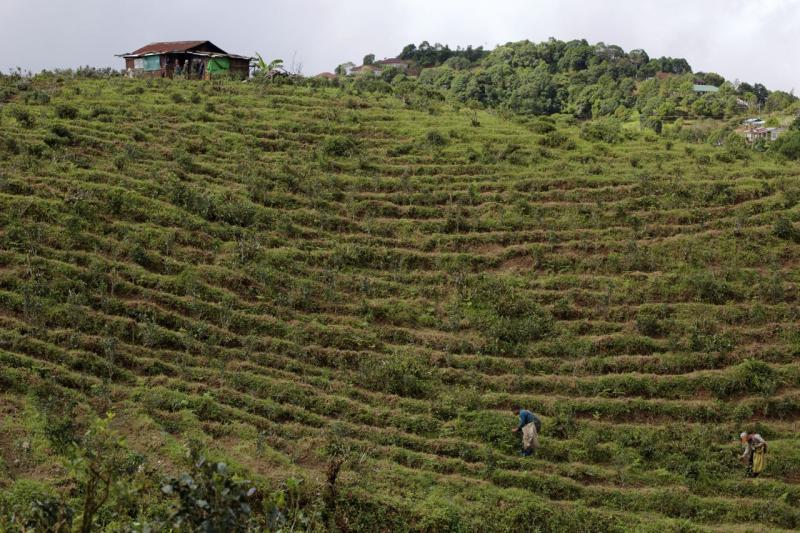
But it wasn’t long before the battles swept up into the mountains as the Japanese invaders fought to push out the British. Sleepy, isolated Thandaungyi was suddenly in the eye of the storm. Local people packed up and fled into the dense forests.
“They thought that no Japs would arrive here, but they came in hoards. They went right over the whole place. At that time the British, the Indians, Gurkhas, there were plenty of them too.
“They even exchanged fire at the tea factory.
“We didn’t see any more, I had to hide in the jungle.”
Aunty Nancy was heavily pregnant with her first child at the time, but she had to carry her own food and bags of belongings on the arduous trek to safety.
“I didn’t know anything! I had a big tummy and I couldn’t see anything. No one to do for us. We tried to hire people but everyone was on his own.
“My eldest son was born in the jungle at that time. Giving birth in the jungle, by god’s help everything went fine.”
Fighting subsided and people crept back into Thandaungyi, which was now controlled by Japanese forces. Life went on. But at the end of the war the Allies pushed back across the country, helped by Aung San’s Burmese nationalists, and conflict ripped back over the hillsides. In defeat, some Japanese troops sought vengeance against local people.
“The Japs killed my grandfather,” says Aunty Nancy, fighting back tears as the violence she witnessed seethes in her memory.
“The first day, the Japs killed my grandfather right on the road there. And then the second day they killed my father.
“I had my house here and I stayed in my house. My father and sister were staying in the church, they called him down to the road, the car road, and they cut off his neck,” she says, brushing a hand near her own throat indicating the decapitation.
“My father. In the night.
“I don’t know if there was any reason for the killing, but they killed my grandfather and then my father. Maybe thinking that he was a spy for the British.”
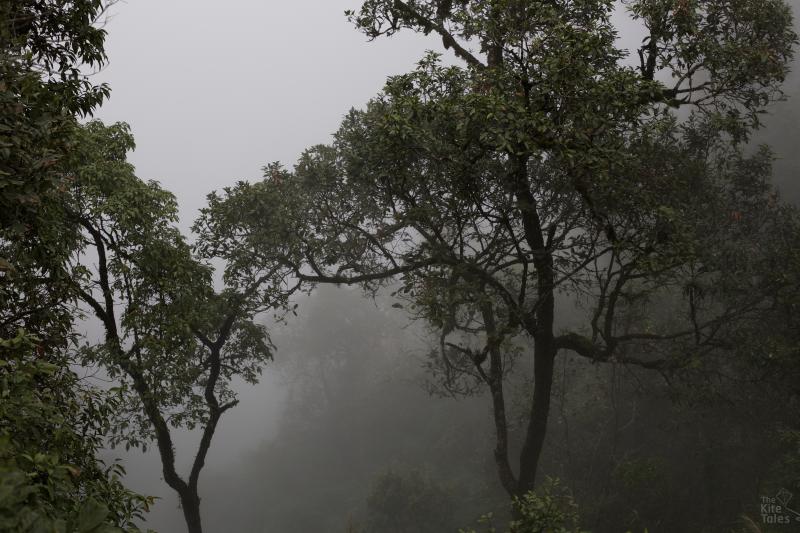
The horrific events of the war were followed by internal conflict as Karen rebels took up arms demanding greater autonomy during the country’s negotiations for independence from the British. After so many years being jostled and abused by outsiders, Thandaungyi sank into uneasy obscurity. The forests again cracked with the sound of gunfire.
In 1962 a military coup pushed the whole country into international isolation.
But life in the town continued and Aunty Nancy settled into raising a family with her husband, who she had met during the war.
“Walking about I met him. I didn’t know him, he came from Tharawaddy, from a far away place, but I have to meet him so God sent us together. He was in the RAF (Royal Air Force).
“Tall, good build. He is not fat he is not thin. The right size! He was the most handsome. There were two handsome people; one police officer, very handsome, and my husband. The two, nobody can beat them.
“When I met him something happened. So funny, when you love somebody, you don’t know yourself but the heart beats quicker,” she says, beaming, before she chuckles self-consciously.
“I am telling you a fairy story.”
The couple opened a small guesthouse in their home, despite the infrequency of travellers able to breach the government red tape.
“Mine was the only house. Food and Agriculture Organisation staff and the UN, they come to visit me and are happy. They came for ten days, the (annual Thingyan water festival) holiday. Every year they came.
“(My husband) was very eloquent, he can talk and he can joke. I can’t do that. I am too simple.
“He passed away in 1984, 32 years ago. Long long ago.”
The couple had eight children, some of whom have travelled far from their birthplace.
“My son and his wife are in Hawaii with their two daughters, one is a nurse or a doctor with a Japanese husband, and the other one is a professor,” said Aunty Nancy.
This family connection has given her the chance to visit both Hong Kong and Singapore. And while she still prefers the quiet of home, she is happy for the link to the world beyond Thandaungyi — and a supply route for her favourite lipstick.
“Chanel is the best,” she says with authority.
“People laugh at me because I am 95 and still I put on lipstick. Early in the morning I wake up and put on thanaka and lipstick. They always mention about lipstick when they see me, because the people up here don’t use it. They use betel nut. I never touch these things so I use lipstick.
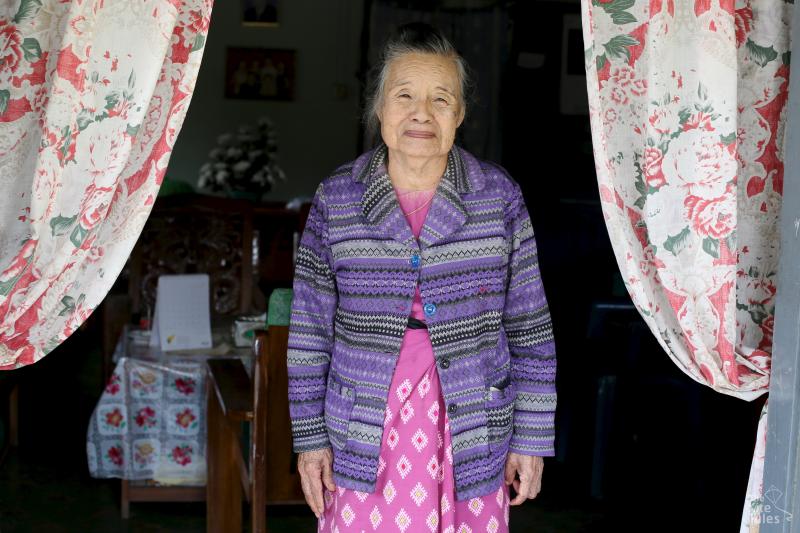
Aunty Nancy’s guesthouse is finally growing and while she is too frail to stray far from her modest parlour these days, she is still at the heart of the social scene.
“You make people come to see me as if we are great people here,” she says to a guest, a western businessman hoping to boost tourism to this remote area.
“Now I don’t go anywhere. I can’t walk out of the house. When I go my heart flutters like that and I feel tired.
“I don’t like politics at all. I like music. Lovely slow love songs. I don’t like the modern Burmese songs. I like western music, old folk songs. I like Pat Boone,” she says.
But her affection for Western musicians does not extend to the more energetic hip-thrusters of the rock and roll era.
“I don’t like Elvis Presley,” she adds firmly.
(Interviewed September 2016)

